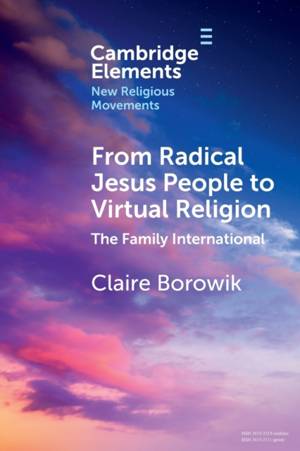
- Afhalen na 1 uur in een winkel met voorraad
- Gratis thuislevering in België vanaf € 30
- Ruim aanbod met 7 miljoen producten
- Afhalen na 1 uur in een winkel met voorraad
- Gratis thuislevering in België vanaf € 30
- Ruim aanbod met 7 miljoen producten
Zoeken
€ 31,95
+ 63 punten
Omschrijving
The Family International (formerly the Children of God) emerged from the radical fringe of the Jesus People Movement in the late 1960s to establish a new religious movement with communities in ninety countries. Characterized from its early days by controversy due to its unconventional version of Christianity, countercultural practices, and high level of tension with society, the Family International created a communal society that endured for four decades. The movement's reinvention in 2010 as an online community offers insights into the dynamic nature of new religious movements, as they strategically adapt to evolving social contexts and emergent issues, and the negotiations of belief and identity this may entail. The Family International's transformation from a radical communal movement to a deradicalized virtual community highlights the novel challenges alternative religions may face in entering the mainstream and attaining legitimacy within the increasingly globalized context of online information dissemination in virtual spaces.
Specificaties
Betrokkenen
- Auteur(s):
- Uitgeverij:
Inhoud
- Aantal bladzijden:
- 92
- Taal:
- Engels
- Reeks:
Eigenschappen
- Productcode (EAN):
- 9781009017602
- Verschijningsdatum:
- 9/02/2023
- Uitvoering:
- Paperback
- Formaat:
- Trade paperback (VS)
- Afmetingen:
- 152 mm x 229 mm
- Gewicht:
- 131 g

Alleen bij Standaard Boekhandel
+ 63 punten op je klantenkaart van Standaard Boekhandel
Beoordelingen
We publiceren alleen reviews die voldoen aan de voorwaarden voor reviews. Bekijk onze voorwaarden voor reviews.











